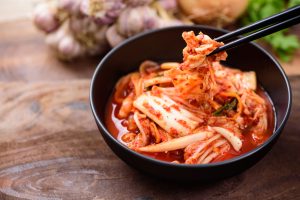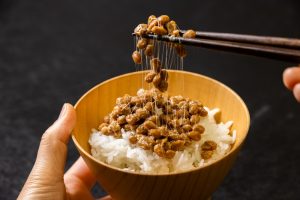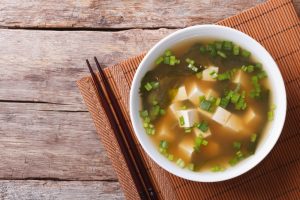Fermented foods have been an important part of Asian diets for centuries. The benefits of these foods are well-known among the people of Asia. But what impact do fermented foods have on our health, and why are they so important in Asian diets?
What do Fermented Foods consist of?
Fermented foods are foods that have undergone a process of lacto-fermentation. This process transforms carbohydrates and sugar into lactic acid, which acts as a natural preservative. Fermented foods are rich in probiotics, which are beneficial bacteria that help to support gut health.
What are Probiotics?
Probiotics are live microorganisms that are similar to the beneficial bacteria found in our gut. Fermented foods and supplements often contain probiotics which support gut health. Next, probiotics can help to improve gut health by balancing the good and bad bacteria in our gut. Therefore, it aids digestion and boosts our immune system.
Fermented Foods in Asian Diets
For centuries, many Asian diets have included fermented foods as a staple, using them both to preserve food and enhance gut health. Some of the most popular fermented foods in Asian diets include:
Kimchi

A staple in Korean cuisine, kimchi is made from fermented cabbage or other vegetables like radish, cucumber, or scallions. Season kimchi with spices, ginger, and garlic for a tangy and pungent flavor. Enjoy the health benefits of kimchi as a probiotic, which improves gut health, boosts the immune system, and reduces the risk of certain diseases.
Natto

A popular dish in Japan, Natto is made from fermented soybeans. It has a strong, earthy flavor and a sticky texture. Natto is high in protein and is a good source of vitamins B2, B6, and K2, as well as probiotics. Additionally, some studies have also linked eating natto to improved heart health, improved bone density, and a reduced risk of certain types of cancer.
Tempeh

A popular side dish, tempeh is a fermented food that originates from Indonesia. Soybeans ferment with the mold Rhizopus oligosporus to make tempeh. Tempeh has a nutty, slightly earthy flavor and a firm texture. It is a good source of protein and probiotics. Additionally, studies have linked the consumption of fermented foods in Asian diets to improved gut health, lower cholesterol levels, and a reduced risk of certain diseases.
Miso

The ingredient miso is a fermented soybean paste that is widely used in Japanese cuisine. Fermenting soybeans with rice or barley, salt, and koji, a type of fungus creates Miso. People use Miso as a seasoning for soups, sauces, and marinades and recognize it for its savory, umami flavor. Furthermore, miso provide probiotics and have a positive impact on gut health, potentially reducing the risk of certain diseases.
Pickled vegetables
Pickling is a common method of food preservation in Asia, and pickled vegetables are consumed as a side dish or snack in many countries in the region. Pickled cucumbers, carrots, radish, and other vegetables are often flavored with spices and vinegar and are known for their tangy, sour flavor. Pickling can increase the nutrient content of the vegetables and also provides probiotics to the diet.
The Benefits of Fermented Foods
Fermented foods are rich in probiotics, which can have numerous health benefits. Some of the benefits of consuming fermented foods include:
- Improved digestion: Probiotics can help to improve digestion by breaking down food and increasing the absorption of nutrients.
- Boosted immune system: Probiotics can help to boost the immune system by producing antibodies that fight off harmful bacteria.
- Reduced inflammation: Studies show that probiotics can help reduce inflammation in the gut, thereby enhancing overall health.
- Improved mental health: Studies have linked the consumption of probiotics to a reduction in symptoms of depression and anxiety, resulting in improved mental health.
Conclusion
In conclusion, probiotics play a crucial role in having good gut health, and fermented foods are a great way to get probiotics into our diet. Fermented foods are a staple in many Asian diets. Unquestionably, they offer numerous health benefits, including better digestion, a boosted immune system, reduced inflammation, and better mental health. So, the next time you are looking to improve your gut health, consider incorporating fermented foods into your diet.














